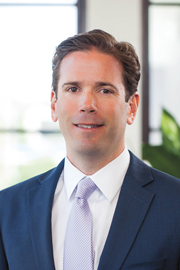
As published in Toledo Business Journal - May 1, 2020
COVID-19 and FSA/DSA Benefits: What Everyone Should Know Now
by Christina Schneider
The current COVID-19 pandemic has introduced dramatic changes to the workforce. Different childcare needs have naturally followed. As a result, many employees will no longer be able to use funds in their Dependent Spending Account (DSA).
A Dependent Spending Account (or Dependent Care FSA) allows an employee to set aside up to $5,000 pre-tax, to pay for eligible daycare expenses. The IRS defines eligible daycare expenses as qualified dependent care costs that are necessary to allow the employee (and spouse) to work. Furthermore, Section 125 requires an employee to set a pre-tax contribution to a Dependent Care Account for the entire plan year. This means the Dependent Care election may not be changed unless there is an event recognized by the IRS and the employer's plan document allowing a mid-year change.
Dependent Care FSA During COVID-19
- IRS regulation allows employees to make a mid-year change to their Dependent Care FSA election (or to make a new election) any time there is a change to the daycare "cost or coverage." (BASIC NEO) Closed schools constitutea qualifying event that would allow for such a change.
- All election changes must be consistent with the daycare change and made within 30 days. Employers should have their employees complete a new enrollment form for their records.
- Once an employee has made the new election, the employer will need to complete the proper participant change with their vendor.
- A Dependent Care FSA stipulates that daycare costs must be incurred to enable the employee and spouse to work or look for work. If the employee or spouse is at home and available to watch the child(ren), any daycare expense would not qualify for reimbursement from the FSA (BASIC NEO).
Flexible Spending Accounts During COVID-19
- If employers anticipate that their employees will return to work when the state allows, they should place their members on LOA (leave of absence) with their Flex administrator.
- There will be no money coming into FSA accounts during this LOA, but the employee will still have access to their FSA funds.
- The potential employer downside (and employee upside) is the employee's ability to use the account without making contributions. If the employee exhausts the account and does not return to work, the employer would still be accountable for repayment to the account.
- It is the employer's responsibility to inform the vendor when deductions will resume.
- Employers will set up a reasonable catch-up repayment option once the employee returns.
The Group Benefits team at Oswald is ready to answer any questions you may have regarding the CARES Act and how it impacts businesses and individuals. Visit https://www.oswaldcompanies.com/ to connect with our COVID-19 Resource Center.
Note: This communication is for informational purposes only.
Although every reasonable effort is made to present current and
accurate information, Oswald makes no guarantees of any kind and
cannot be held liable for any outdated or incorrect information.
OC_1950


